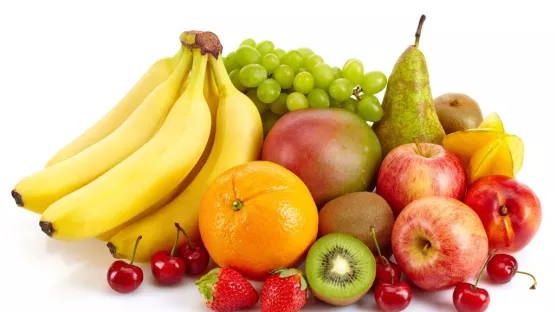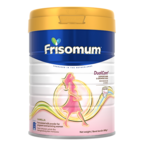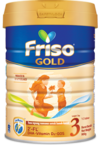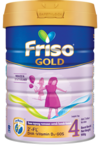Pregnancy cravings of the healthy kind
Pregnancy cravings are inevitable and swapping salty chips to healthy .... read more

With pregnancy comes a whole host of symptoms, one of which is food cravings. While the common phrase used to describe the pregnancy diet is "eating for two", that isn't necessarily true. You need to have a healthy, nutritious diet to meet the extra nutritional needs of your growing child, without overeating.
Fruits play a large role in your pregnancy diet—they are rich in fibre as well as essential vitamins and nutrients such as vitamin C, and can help satisfy any pregnancy sugar cravings. Some fruits like bananas even have natural laxative properties that can prevent constipation. In this article, we cover some of the best fruits for you to eat during pregnancy, how much to eat, and which fruits you should avoid.
Among the many fruits that are suitable for pregnancy, here are our top choices:
Apples
This ever-popular fruit is a good way to build your child's immunity and strength and helps reduce the risk of wheezing, asthma and eczema in your child as he grows. They are also rich in vitamins A, E and D, as well as zinc.
Bananas
Bananas are by far one of the best fruits to eat during pregnancy because they are a great source of essential nutrients like folate, vitamin C, B6, potassium and magnesium. Folate is an important nutrient during pregnancy and helps prevent anaemia in pregnant mums. Vitamin B6 helps balance your sodium levels. Magnesium ensures a healthy fluid balance in your body, which can reduce nausea and vomiting during pregnancy.
Oranges
Oranges are rich in folate, vitamin C, and water, and it also aids in the absorption of iron – making it one of the best fruits to eat when pregnant. Just like bananas, the folate found in oranges can be a significant help in preventing spina bifida—where the spine and spinal cord don't form properly—and anencephaly.
Mangoes
These fruits are an excellent source of vitamins A and C. In fact, just 1 cup of chopped mangoes will fulfil 100% of your daily recommended intake of vitamin C and over 30% of your daily recommended intake of vitamin A.
Avocados
These rich, creamy fruits are a great source of vitamins B, C, E, and K, monounsaturated fatty acids, potassium, choline and copper during pregnancy. The healthy fats found in avocado prevent neural tube defects and boost the development of your child's skin and brain tissues. Choline is crucial for your child's brain and nerve development; in fact, a lack of choline can lead to them having memory issues later on.
Guavas
Guava is a healthy fruit for pregnancy as it is rich in a huge variety of vitamins and nutrients—including vitamin C and vitamin E, polyphenols, carotenoids, isoflavonoids and folate. Guavas also help with digestion and can strengthen your developing child's nervous system, making it one of the best and healthy fruits to eat when pregnant.
Watermelons
Watermelons are a source of vitamins A, C, and B6, along with magnesium and potassium. They're also rich in fibre, which aids in bowel movements and reduces constipation. Eating watermelon during the last trimester of your pregnancy can be a way to relieve muscle cramps, heartburn, and swelling in hands and feet (oedema).
Grapes
Grapes provide you with a good amount of vitamin C and vitamin K, folate, fibre, organic acids, pectin and immune-boosting antioxidants that can help prevent infections.
Pomegranates
Pomegranates are high in calcium, folate, iron, protein and vitamin C. Because they are so iron-dense, pomegranate is one of the fruits you must eat during pregnancy to prevent anaemia. Also, some research has shown that drinking pomegranate juice is a way to decrease the risk of injury to the placenta during pregnancy.
Apricots
One of the best and healthy fruits you can have when pregnant, apricots are a great source of vitamins A, C, and E, as well as calcium, iron, potassium, beta carotene, phosphorus and silicon. All of these nutrients play a big part in the growth and development of your child.
During pregnancy, you should consume 2 to 4 servings of fruit every day to maintain a healthy diet for both you and your child. While fresh fruit is the best, canned fruit, fruit juice and dried fruit are suitable as well. If you don't like eating fruits on their own, you can mix them into a salad, yoghurt and even your cereal, use them as a topping for pancakes, or just blend them into a smoothie. If you're craving sugar, try snacking on dried fruit like raisins and mangoes instead of junk food. And if you are likely to forget to eat fruits during your pregnancy, try keeping a bowl of them in sight as a useful reminder.
While most fruits are beneficial to you during pregnancy, there are some that you should either eat in limited amounts or avoid altogether. For example, even though eating grapes is a way to boost the levels of antioxidants in your body, black grapes can be a way to produce body heat, so you may want to stay away from them during the first month of your pregnancy as it may not be suitable for you during pregnancy. Besides grapes, here are the 3 other fruits to avoid during pregnancy.
For more accurate information on the fruits you should consume and avoid during pregnancy, you should always consult your resident or family doctor. They will be able to assess your overall health and give you an accurate recommendation of what to consume, and how much.
Fruits aside, there are also certain food and beverage types that you should avoid having while you are pregnant with your little one.
Raw food
You should, to your best abilities, avoid any raw or undercooked fish, shellfish, meat and eggs. This is because such food choices could contain harmful bacteria and parasites that can bring about diseases like salmonella and toxoplasmosis, which have been linked to the unfortunate event of miscarriages.
Alcoholic beverages
Alcohol increases the risk of miscarriage, premature birth, and foetal alcohol spectrum disorders (FASD). It isn't clear exactly how much alcohol is required to cause foetal development issues, so it is not advisable for pregnant women to drink any amount of alcohol during pregnancy. These two just scratch the surface, as there are many more foods and beverages that pregnant women should avoid, so do take the necessary precautions.
To address the specific needs of mums-to-be, maternal milk is often recommended as it helps balance both your and your child’s nutritional needs safely. We have formulated Friso® Gold Mum with both mum and child in mind, and its unique Dual Care+ formula supports you on your pregnancy journey. Some of the vital nutrients that Friso® Gold Mum provides you with include:
Vitamin B12 - Needed for red blood cell production and the healthy functioning of the nervous system3.
Folic Acid - Folic acid is essential for growth and division of cells. Folate plays a role in the formation of red blood cells. Folate helps to maintain the growth and development of the foetus 4.
Iodine - Essential for the formation of thyroid hormones, which supports brain development5.
Vitamin D - Vitamin D is necessary for the absorption and utilisation of calcium and phosphorus 1.
Calcium - Helps in the normal growth and development of bones and teeth 2.
Low glycemic index - The glycaemic index (GI) is a rating system for foods containing carbohydrates. It shows how quickly food affects your blood sugar (glucose) level when eaten on its own. The low glycemic index (GI) could help the mother avoid being overweight during pregnancy.
When you consider pregnancy milk powder, it is also best to consider the origins of the milk, the process of manufacturing, and nutrient content as well as one which helps you control weight gain during pregnancy. Friso® Gold Mum preserves the natural nutrients of the milk to give you what you need in your pregnancy journey. Now that you are aware of the importance of maternal milk/susu, check out what Friso® Gold Mum has to offer now!


